Home > Climate News >
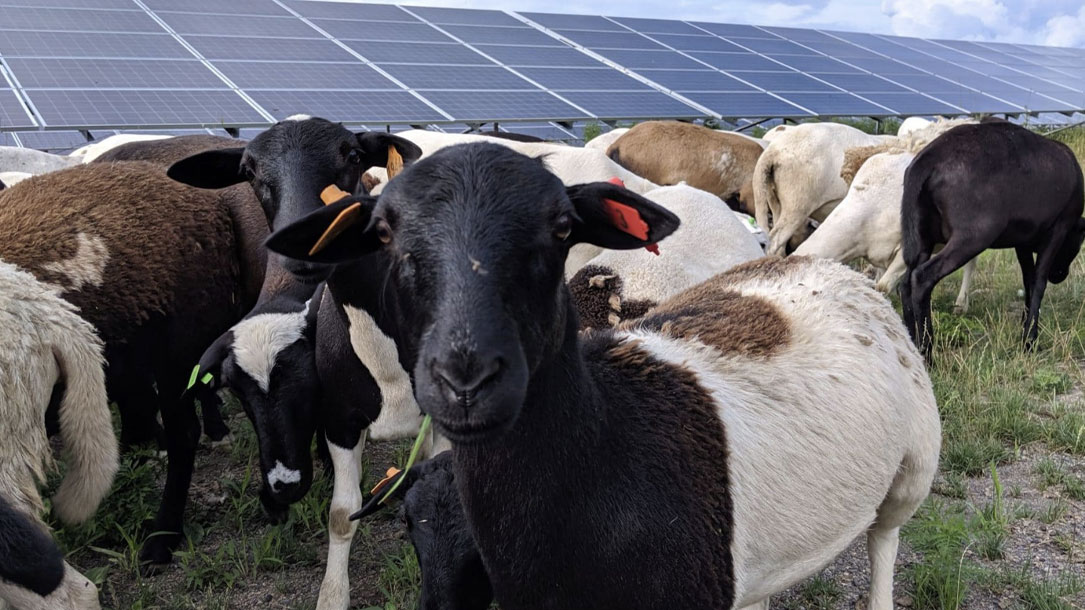
Solar meets sheep (and bees, and more)
Often solar panels sit on former agricultural land, but aren’t what we’d otherwise think of as a farm.
Agrivoltaics aims to change that by hosting PV panels and agriculture on the exact same land. Often, livestock like sheep graze under the solar panels. Sometimes the projects include pollinator habitat as well, which can benefit biodiversity, honey production, or adjacent pollinator-dependent crops. And trials are being done growing shaded crops under raised panels, too…
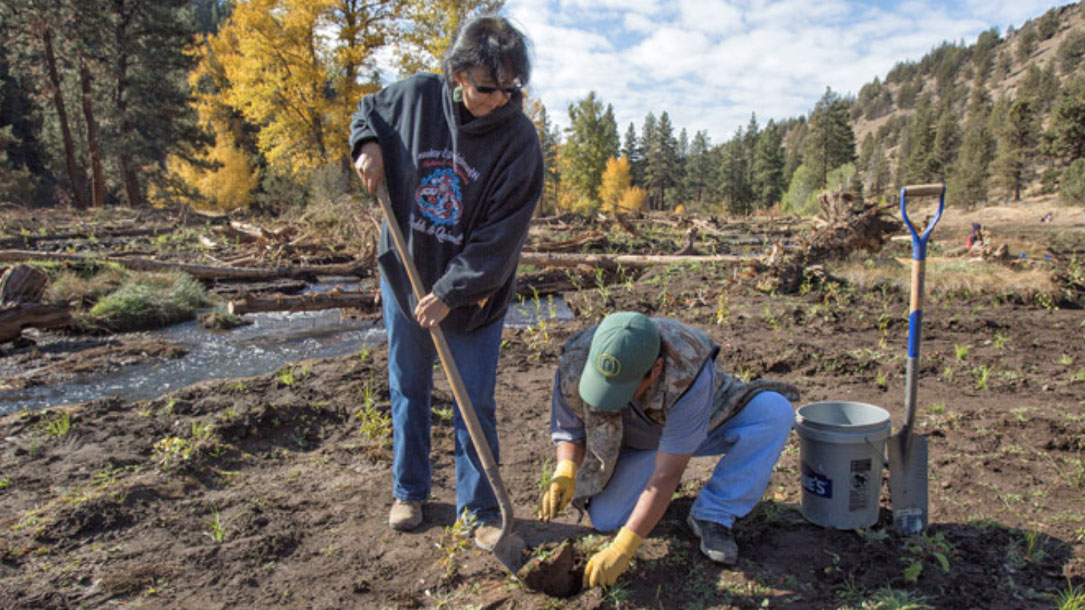
Climate change: Impacts on the communities we love
Central Oregon has some incredible towns, whether it’s the breweries, restaurants, bike paths, or people living there. While we often focus on how climate change is affecting the natural areas around us, it’s also impacting our communities. Learn more about what we can expect from climate change in the communities we love.
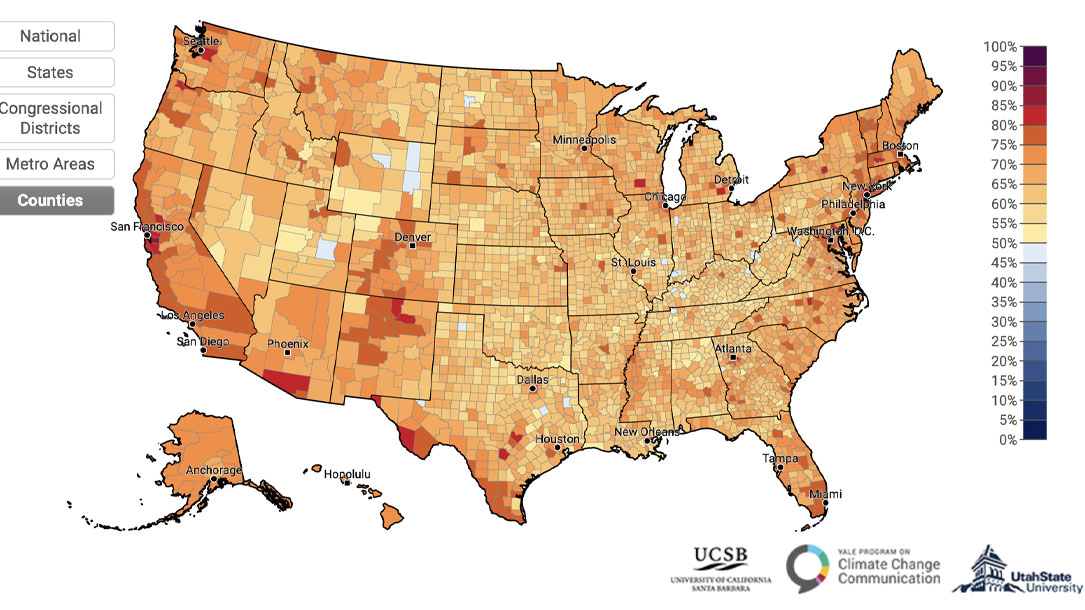
Estimated % of adults who think global warming is happening
These maps show how Americans’ climate change beliefs, risk perceptions, and policy support vary at the state, congressional district, metro area, and county levels. NOTE: The Congressional District data are based on the 116th Congress. Recent and ongoing redistricting means that some of these data are not current (e.g. North Carolina) for the Congressional District level.

Person to know: Katharine Hayhoe
Katharine Hayhoe, a climate scientist and Christian, is working to bring hope to the climate change debate.
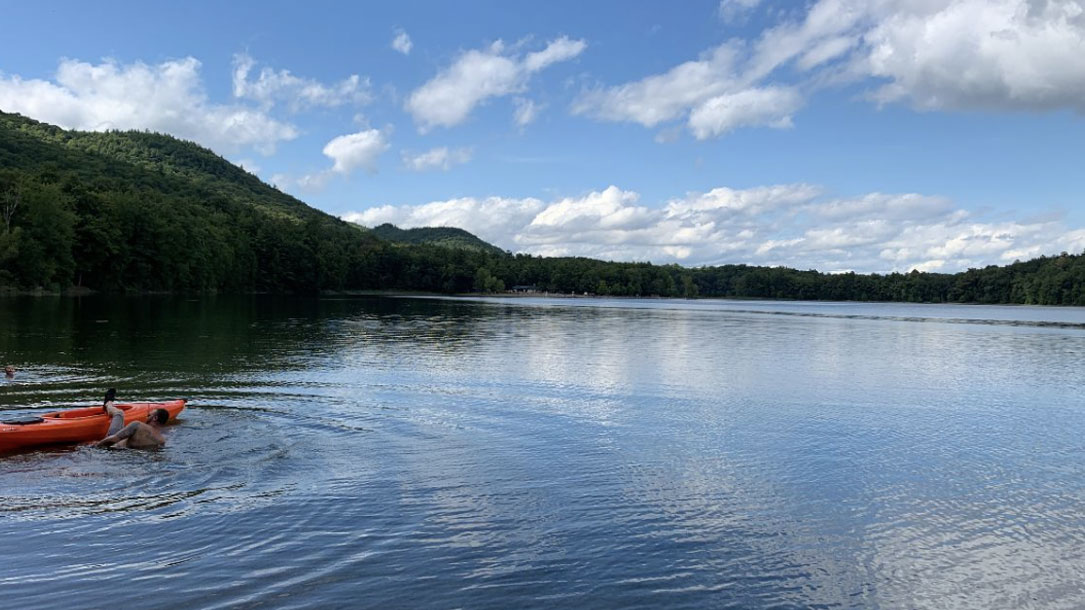
Finding hope — and faith — in the climate change debate
Katharine Hayhoe, a climate scientist and Christian, is working to bring hope to the climate change debate. On Saturday night [in Salt Lake City, Utah], she did so by describing a giant boulder on a hill…
“People are willing to do something if they feel like what they do will make a difference,” she said.
“Is talking sufficient? Of course not. Is talking necessary? 100%,” she said.
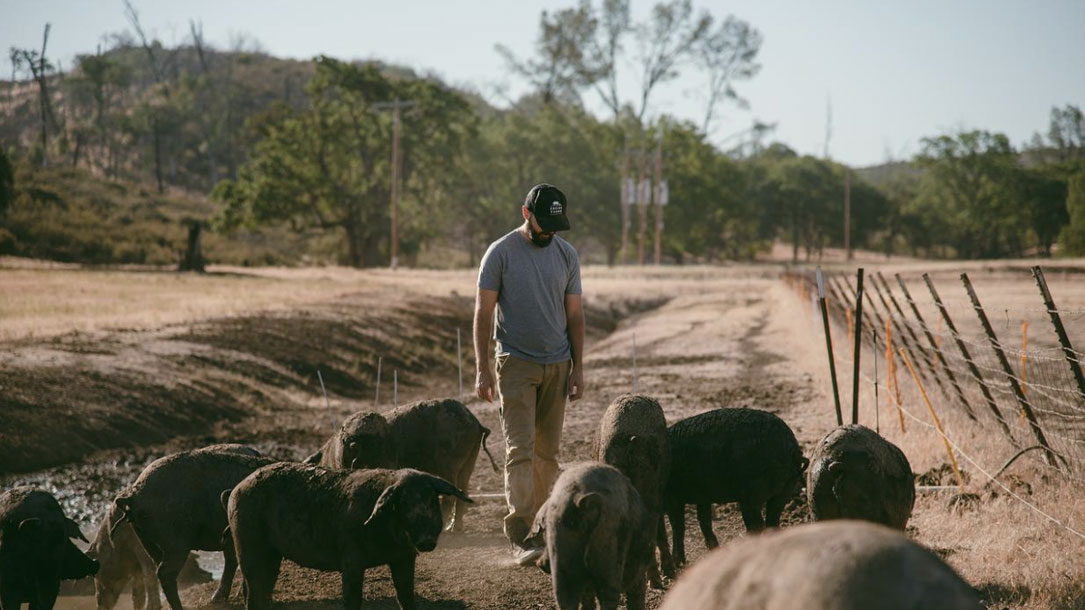
Fighting climate change through farming
Some research suggests that widespread trapping of carbon in soil through practices such as cover cropping, low- or no-till cultivation, and crop rotation could globally store up to the equivalent of eight billion metric tons of carbon dioxide per year—nearly matching current annual emissions from the burning of fossil fuels, though more research is needed to determine if the gains decline overtime…

$500 grant: From classrooms to communities
The Climate Initiative is offering $500 to the first 10 land trusts interested in holding community climate change conversations.
They believe youth can — and do — lead, and have developed and tested the curriculum. Check out the videos, articles, and resources — and email Leia if you’d like to learn more or host a program. This could be a great way to partner with area schools, teachers, and your community.
You can find out the details on the website and email Leia Lowery.
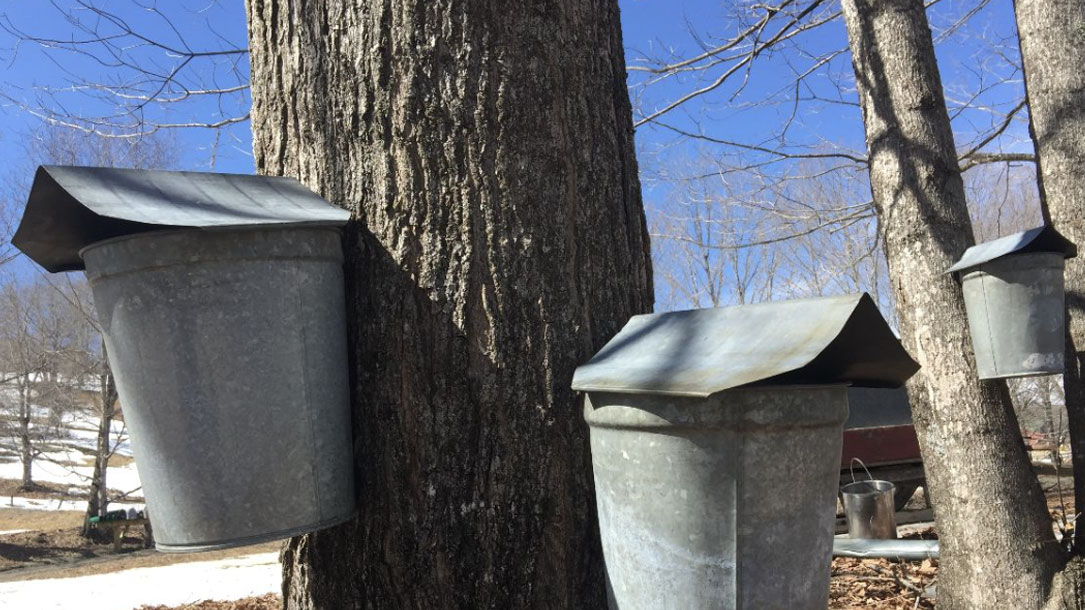
Sequestering carbon while making breakfast sweeter
Vermont’s private forests play a key role in mitigating climate change — they store four times as much carbon as the state’s vehicles release each year. Selling forest carbon credits to companies and individuals working to reduce their carbon footprints provides a new source of income for individual landowners like Jessica Boone and Everett McGinley in Vermont’s Cold Hollows region, which helps them protect their forests. Unfortunately, carbon markets can be too costly for most owners of small forest parcels to join.
That’s why the Vermont Land Trust formed Vermont Forest Carbon LLC and teamed up with The Nature Conservancy, the Caron Dynamics Lab at the University of Vermont, and Cold Hollow to Canada, a local land stewardship and conservation organization, helping landowners overcome the cost barrier by working together as a single carbon project.
This is the first large-scale aggregated forest carbon project in the country, with fifteen neighbors teaming up to sell carbon credits from their land…

Climate Change Pilot Project
South Kingstown Land Trust was invited by the University of Rhode Island’s Coastal Resource Center (CRC) to participate in a pilot project to investigate how climate change could impact land trusts — whether impacts to our land holdings themselves or to our priorities for preservation.
For Rhode Island, the likely effects of climate change will include sea-level rise and increases in air and water temperature, precipitation, and storminess. The study was funded by the Rhode Island Coastal Resources Management Council…
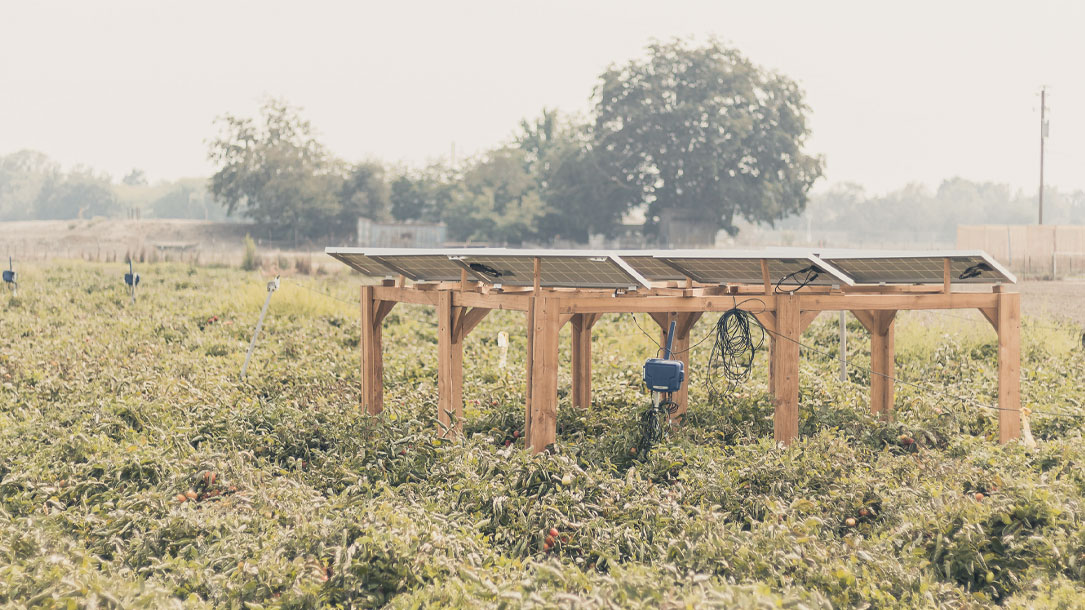
Feed people; power economies; foster peace with agrivoltaics
“Amidst the noise, haste, and chaos of modern life there are more positive developments for humanity than one might think. Everyone focuses on the disasters of the climate crisis, and while those do motivate our daily work, we also feel it’s important to highlight the hopeful – the very real innovations pushing our clean energy movement forward…”












